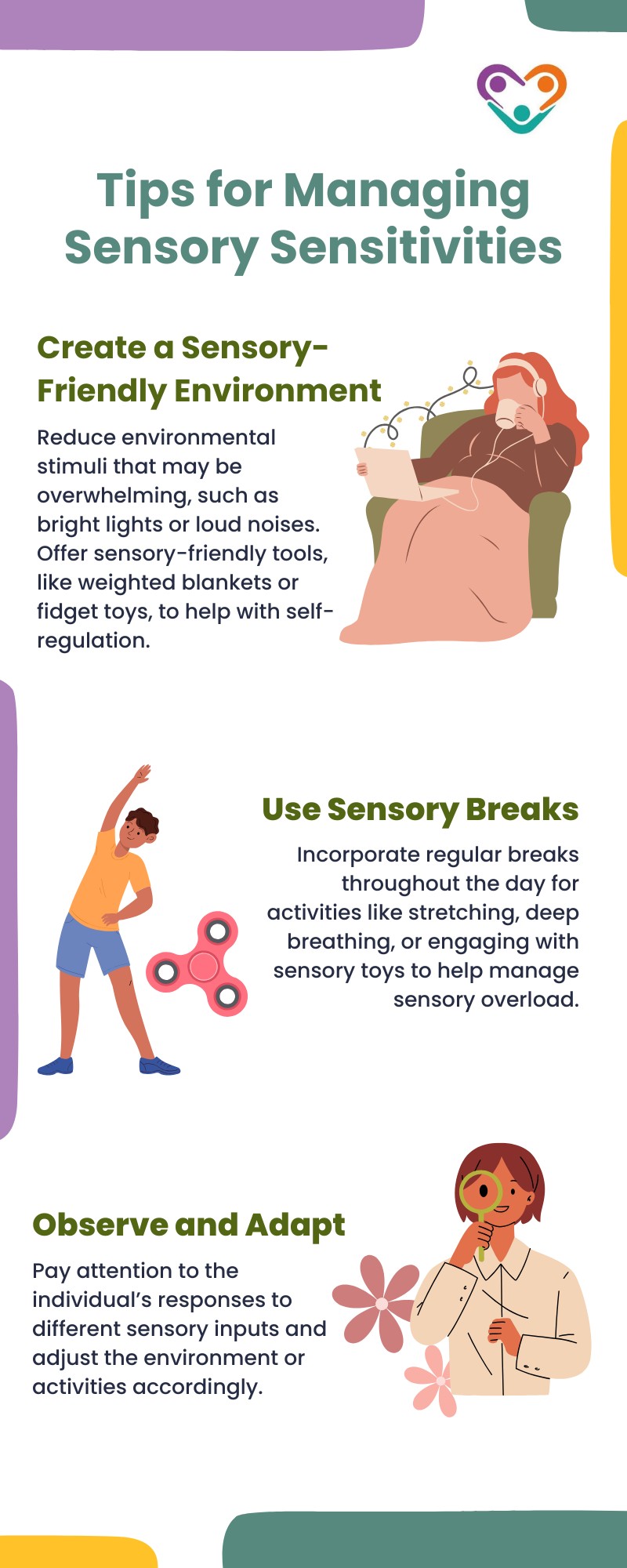Managing autism behaviors effectively requires a well-rounded approach that considers the individual needs of the person with autism. These behaviors, which may range from challenging to more subtle, can often be difficult to understand and manage.
However, with the right strategies and support, individuals with ASD symptoms can thrive in their environment, engage in meaningful interactions, and experience improved quality of life.
So without further ado, here are some of the most effective strategies that parents and caregivers can use for managing challenging behaviors in autistic individuals.
Build a Structured Routine
For many individuals with autism, having a structured routine provides a sense of security and predictability, reducing anxiety and minimizing challenging behaviors. When the individual knows what to expect, it can help them feel more comfortable and confident throughout the day.
Establishing consistent routines at home, school, or work can assist with transitions and reduce meltdowns or aggressive behaviors.
For instance, regular schedules for daily tasks such as eating, sleeping, or school activities help create a sense of stability. Visual schedules or timers can also be used to aid in transitions and provide a visual representation of what is happening next, enhancing understanding and preparedness.
Positive Reinforcement
One of the most effective strategies for managing autism behaviors is the use of positive reinforcement. By focusing on and rewarding the behaviors you want to see more of, individuals with autism are more likely to engage in those behaviors consistently.
For example, if a child completes a challenging task, offering a reward, such as a sticker or a few minutes of playtime, can reinforce their success and motivate them to repeat that behavior in the future.
Manage Sensory Sensitivities
Many individuals with autism experience sensory sensitivities, where certain stimuli (such as loud noises, bright lights, or certain textures) can be overwhelming or even painful.
These sensory sensitivities can lead to behaviors such as meltdowns, avoidance, or self-soothing actions.
Managing sensory sensitivities is essential for preventing challenging behaviors and helping the individual feel more comfortable in their environment. Sensory-friendly strategies, such as using noise-canceling headphones or providing sensory breaks, can make a significant difference in how the individual interacts with their surroundings.
Here are tips you can consider to manage sensory sensitivities in autistic individuals:

Behavioral Interventions
Applied Behavior Analysis (ABA) is one of the most widely recognized and evidence-based therapies for managing autism behaviors. ABA therapy focuses on understanding behavior and using reinforcement techniques to teach new skills while reducing problem behaviors. It is based on the principles of behaviorism, which suggests that behaviors can be learned or unlearned through reinforcement.
ABA therapy is highly individualized and can be tailored to meet the unique needs of each person with autism. Whether it’s increasing social skills, teaching communication, or addressing challenging behaviors, ABA is an effective tool for promoting positive outcomes.
Social Stories and Visual Supports
Social stories are another valuable tool for managing autism behaviors. These stories describe social situations in simple, clear terms, outlining appropriate behaviors and expectations. Social stories help individuals with autism understand social cues, reduce anxiety about social interactions, and learn how to behave in different situations.
For example, a social story could explain what to expect during a doctor’s appointment, how to interact with peers, or what behavior is expected during a family meal. These stories are often paired with visuals to further support understanding.
Develop Self-Regulation Skills
Self-regulation refers to the ability to manage one’s emotions, behavior, and body movements in response to stimuli or situations. Individuals with autism may struggle with self-regulation, which can result in outbursts or meltdowns when they feel overwhelmed.
Teaching self-regulation strategies can help individuals manage their emotions in a healthier way.
Strategies may include deep breathing exercises, using a calm-down corner, or practicing mindfulness techniques. It’s essential to teach these skills in a supportive environment, where the individual can learn and practice them in a calm, structured setting.

Collaborate with Professionals
Collaboration with professionals is essential for managing autism behaviors effectively. ABA therapists, speech therapists, occupational therapists, and educators all play crucial roles in supporting individuals with autism. By working together, they can provide consistent strategies and interventions that address various aspects of the individual’s life.
Family members also play a critical role in this collaborative process. Keeping communication open between therapists, educators, and family members ensures that strategies are being implemented consistently across all settings.
The Key Takeaway
Managing autism behaviors requires a comprehensive, individualized approach that incorporates various strategies. From building structured routines to using positive reinforcement, communication tools, and sensory accommodations, there are numerous ways to support individuals with autism in managing their behaviors.
Behavioral interventions, such as ABA therapy, as well as social stories and self-regulation techniques, can further enhance an individual’s ability to navigate the world around them.
Collaboration with professionals, along with ongoing support from family members, ensures that the individual’s needs are being met in a holistic manner.
With the right tools, strategies, and encouragement, individuals with autism can develop the skills they need to lead fulfilling and successful lives. At Golden Care Therapy, we offer high-quality ABA therapy tailored to meet the unique needs of each individual. Our team is dedicated to providing compassionate, evidence-based support that empowers individuals and their families.
If you’re looking for expert autism services in Georgia, New Jersey, Indiana, New York, or Florida, don’t hesitate to contact us today. We’re here to help guide you on the path to success, and we’d love to be a part of your journey. Reach out now to learn how we can assist you and your loved ones.



